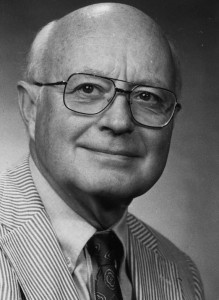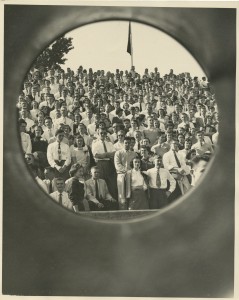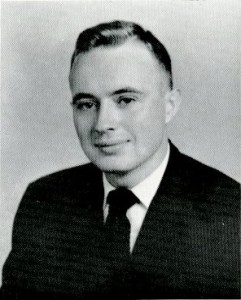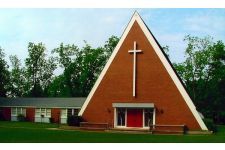William Holt Terry By the Decades:
1950-1959, 1960-1969, 1970-1979, 1980-1989, 1990-1999, 2000-2015

William Holt Terry was born on July 25th, 1932, in Erwin, North Carolina. “His mother was a teacher,” says Will’s best friend, Sue Ross. [1] As she explains, “he grew up in the Methodist church” as a child with a lot of personality. [2] The father for whom he was named died before Will’s birth, so his widowed mother, Laura Elizabeth Holt Terry, raised him as a single mother–which was quite the task through the Great Depression and World War II.
In Sue Ross’s words, Laura Terry was “a beloved public school teacher in Durham, [who] reared her son with courage and devotion and faith. Surrounded by loving aunts, uncles, and cousins – one of whom remembers him today as the cutest little rascal she has ever known – Will spent his boyhood on a farm in Durham County off Guess Road.” [2]
According to Sue Ross, he liked being “the star.” [1] As the star of Laura’s life and his extended family’s, his transition into a collegiate scholar was, in Dr. Ross’ words, a momentous occasion: “after Will graduated from Durham High School in 1950, his mother’s first dream for him came true when he matriculated at Davidson College, the place which, from his first day on campus to the end of his life, was his heart’s home.” [2]
At first, however, he had no interest in attending the school. In fact, his mother had to convince him to go and all but packed his bags for him. [3] This young man loved classical music, who loved the beach, the church, dirty jokes, school, and his friends, but had yet to learn to love Davidson.
A Davidson College student from 1950 to 1954, he himself has said that, “I came here as the greenest freshman whom [the college] ever accepted.” [4] However, his best friend Sue Ross tells the story differently: “he was a wonderful student. He read all the time. He was amazingly informed. He loved reading biographies. He was just an insatiable reader.” [1]

He and Sue Ross were agreed: undergraduates are living in,
“the most important time, single period of their lives. That four-year period is absolutely just stunning, it’s so crucial. It’s so seminal. Well, it just is. Think of all the things that you think about and do and change and grow. It’s when you discover who you are as a person. Sometimes people are dealing with sexuality. It’s when a lot of times you meet the person you’re gonna spend your life with. You decide what you want to major in. You decide what your activities are going to be, who your friends are going to be, what your profession sometimes is going to be.” [1]
One might take Will’s own life as proof of this, as his student days, in his own words, “helped me become the man that I am.” [4] This is particularly true of the impact Davidson had on his interests, as his involvement in various organizations piqued his curiosity in many different subjects and people. For instance, his extracurriculars included serving in the Young Men’s Christian Association (YMCA), teaching Sunday school classes, participating on the Quips & Cranks staff, being a member of Sigma Phi Epsilon social fraternity, joining the national honorary forensic society Tau Kappa Alpha, and being elected president of the Eumanean Literary Society his senior year.
Other student activities – including membership in the honorary fraternity council and the editorial staff of the college annual – resulted in his election to Omicron Delta Kappa and ‘Who’s Who in American Colleges and Universities’ during his senior year. But more important than his extracurricular activities was the fact that at Davidson, Will acquired “lifelong friends, developed intellectual curiosity, honed his keen sense of humor, and found his childhood faith deepening.” [2]

Of course, Will’s four years were greatly shaped by the era. In the early 1950s, Davidson was a campus of 800 students and 62 faculty members. Social life revolved around church groups, fraternities, and the three big dances of the year. The only women were the wives of students and faculty or the co-ed students bussed in for dances over the weekend. African-Americans’ presence on campus was limited to their duties as cleaning staff or entertainers. Perhaps the best-remembered example of this was Louis Armstrong’s performance on campus in 1954.
On the whole, students tended to be more conservative than the faculty. For instance, in October of 1952, there were 359 students in favor of Eisenhower and 129 in favor of Stevenson. Their conservatism played itself out in another way in “the silent fifties:” their unwillingness to discuss sex. [7] Sue Ross confirmed this also, stating that, “people didn’t talk very much about sex” during that era. [1] Yet, students were curious, as the student body’s most frequently circulated library book from Will’s senior year was Kinsey’s Sexual Behavior of the Human Female.
At that time, parents expected that the college would keep a tight rein on each student. In theory, at least, there was no alcohol, limited access to young women, and limited access to the city of Charlotte. Trusting in the college to monitor students, parents were relatively uninvolved in college affairs. [8]
However, parental vocations did influence their children’s adult lives. According to Sue Ross, “so many people came knowing [what they wanted to do with their lives] or they were going into their father’s business.” [1] This was an experience Will Terry couldn’t possibly have had, so, he followed in his mother’s footsteps instead. Like his mother, who “received her education in the Durham County schools” and then went on to devote her life to them as an educator, Will graduated from Davidson in 1954 and returned just a year later to serve the college as a young administrator. This pattern would continue throughout his life as he found repeated ways to give back to his alma mater.
According to his friend T. Hartley Hall, ‘51,
“He became a Presbyterian at Davidson. He told me about telling his mother. He said, ‘Mother, you know, I’ve decided that I need to do something very important. You go to college and your values change and your outlook shifts. I’ve decided to join the Presbyterian Church.’ His mother looked at him and said, ‘And this came about because you went to Davidson? You gonna be a Presbyterian? Well, thank God we didn’t send you to Wake Forest.’” [8]
Wake Forest, which had a Baptist affiliation at the time, would indeed have endowed Will Terry with other skillsets and priorities. Will, though, went to Davidson and gained a new faith, a ferocious intellect, and a keen sense of how people worked.

After receiving his B.S. in History from Davidson College in May of 1954, he attended Union Seminary that autumn. [9] Then, from the fall of 1955 to the spring of 1956, Will returned to Davidson College as Secretary of the YMCA, which was essentially the role of chaplain at the time. His predecessor, Sam Magill, who served in that role from the fall of 1952 to the spring of 1954, explains: “when I left to return to Chapel Hill in 1955, Will Terry replaced me temporarily, taking a year’s leave from Union Seminary to do so. He was an ideal person for the many roles he filled at Davidson.” [10]
This position evolved over decades at Davidson; it was originally entitled “Secretary of the Y.” This was a position filled by young men–usually recent graduates–who could connect more easily with the student body and could mediate between students, faculty, and staff as he was the middleman in terms of age and position. At the time, all incoming students were unofficially and automatically enrolled in the YMCA once they came to Davidson. [7]
As was the case when Will was a student only a year and a half prior, the college hosted mandatory vesper services on Sunday evenings and chapel three times a week. [7] As the Secretary of Y, Will’s responsibilities included coordinating for speakers to come to campus, keeping chapel services interesting and enlightening, taking the students of the Y cabinet on retreats, and acting as one of the prominent voices for the student body. [7]
Although he served as an important source of spiritual and life guidance to students, his duties did not extend to providing pastoral care, as this job title did not yet require someone who had completed seminary or already served as a pastor. [10] Moreover, he was only charged with providing support for and maintaining religious connections with Protestant students. [7, 3]
The religious landscape of the college, in a sense, was at once expansive and narrow. It was incredibly broad in that all students were assumed to be devout Christians and to have come from a family of faith, meaning that students had a widely-shared experience of faith and a common religious vocabulary. [7] Davidson itself was considered to be “the Presbyterian college,”or ‘the place where pastors sent their sons. [12] Will Terry himself believed it to be an institution with “the courage to embrace the Christian faith without apology.” [4] Yet, the spiritual environment was almost completely limited to Protestant sects.
While he was chaplain, he became friends with John Kuykendall, ‘59. As Dr. Kuykendall explains, “he was the YMCA Secretary and I was on the student cabinet of the YMCA . . . He was very approachable, almost our age, and very much engaged with everything that went on.” [7]
Moreover, he was passionate. According to Richard Terry, ‘81, “he loved Davidson. If you could measure that, he would be in first place. He would get the gold medal. Or he’d be tied with a whole lot of people.” [13]
After his one-year term was over, Will returned to Union Theological Seminary of Richmond and graduated in 1958. [9] Following his ordination on July 27th, 1958, and with his Master of Divinity in hand, he became the pastor of Acme Presbyterian Church in Riegelwood, North Carolina, a role which he filled for the rest of the decade. [7, 14]

Notes
- Sue Ross’s interview.
- Ross, Sue. “Will Terry – Obituary.” The Charlotte Observer. Legacy.com. 28 Mar. 2015. 27 May 2015. Web.
- Leland Park’s interview.
- Davidson College Presbyterian Church. “A Service of Witness to the Resurrection.” 2 May, 2015.
- The Dean’s Outbasket.
- Richard Terry’s interview
- John Kuykendall’s interview.
- Hartley Hall’s interview.
- Alumni Relations. “Quips & Cranks – Class of 1954 – 50th.” Will Terry. RG 5/4.5.
- MaGill, Sam. “Re: Davidson Research Initiative.” Email. From: Sam MaGill. To: Eleanor Yarboro. 8 July 2015. 9 July 2015. Davidson College Archives, Davidson College, NC.
- Rob Spach’s interview.
- Church Cooperation Committee. “Your Church and Davidson College: Offspring of the Church and Mother of Churchmen.” Religion and Davidson College (3) – Published Pamphlets. 1949. Davidson College Archives, Davidson College, NC.
- Richard Terry’s interview.
- William Rikard’s interview.
Author: Eleanor Yarboro
Date: 6 October 2015
Cite as: Yarboro Eleanor. “William Holt Terry, 1950-1959,” Davidson Encyclopedia, 6 October 2014 <https://davidsonarchivesandspecialcollections.org/archives/encyclopedia/william-holt-terry-1950-1959/>
Related Entries:

Sorry, comments are closed for this post.